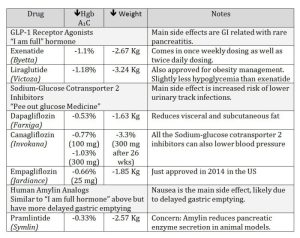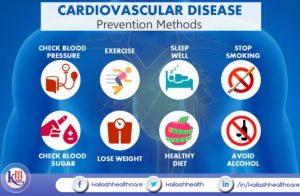
Embark on a journey to discover the secrets of a healthy lifestyle for preventing heart disease. This guide is filled with valuable insights, tips, and advice to keep your heart in top shape.
Learn about the vital role of nutrition, physical activity, stress management, and more in maintaining a healthy heart.
Overview of a Healthy Lifestyle for Preventing Heart Disease
Adopting a healthy lifestyle is crucial in preventing heart disease as it can significantly reduce the risk of developing cardiovascular issues. By making positive choices in terms of diet, physical activity, stress management, and avoiding harmful habits like smoking, individuals can improve their heart health and overall well-being.
Key Components of a Heart-Healthy Lifestyle
A heart-healthy lifestyle encompasses various key components that work together to promote cardiovascular wellness:
- Eating a balanced diet rich in fruits, vegetables, whole grains, and lean proteins can help lower cholesterol levels and maintain a healthy weight.
- Engaging in regular physical activity, such as aerobic exercises or strength training, can strengthen the heart muscle and improve circulation.
- Managing stress through techniques like meditation, yoga, or deep breathing exercises can reduce the impact of stress on the heart.
- Avoiding smoking and limiting alcohol consumption are essential in preventing heart disease and other cardiovascular conditions.
Benefits of a Healthy Lifestyle in Reducing Heart Disease Risk
Embracing a healthy lifestyle can bring about numerous benefits in reducing the risk of heart disease:
- Lowering blood pressure and cholesterol levels, reducing the strain on the heart.
- Maintaining a healthy weight and reducing the risk of obesity-related heart issues.
- Improving overall cardiovascular function and reducing the likelihood of heart attacks or strokes.
- Enhancing overall quality of life and longevity by promoting overall well-being.
Nutrition and Heart Health
Eating a balanced diet plays a crucial role in maintaining heart health. The foods we consume directly impact our heart health, either positively or negatively. It is essential to be mindful of what we eat to prevent heart disease.
Beneficial Foods for Heart Health
- Omega-3 fatty acids found in fatty fish like salmon, mackerel, and sardines can help reduce inflammation and lower the risk of heart disease.
- Fruits and vegetables rich in antioxidants, vitamins, and minerals can help protect the heart and improve overall cardiovascular health.
- Whole grains like oats, quinoa, and brown rice provide fiber and nutrients that support heart health.
Foods to Limit for Heart Health
- Processed foods high in added sugars can contribute to weight gain and increase the risk of heart disease.
- Foods high in saturated fats like red meat, butter, and cheese can raise cholesterol levels and lead to heart problems.
- Excessive salt intake can contribute to high blood pressure, a major risk factor for heart disease.
Salt, sugar, and saturated fats, when consumed in excess, can have detrimental effects on heart health and increase the risk of developing heart disease.
Physical Activity and Heart Health

Regular physical activity plays a crucial role in preventing heart disease by improving cardiovascular health, reducing blood pressure, and maintaining a healthy weight.
Benefits of Exercise for Heart Health
- Improves circulation and blood flow to the heart
- Helps lower cholesterol levels
- Reduces the risk of developing high blood pressure
- Aids in weight management and reducing body fat
Examples of Beneficial Exercises
- Aerobic exercises such as walking, running, cycling, or swimming
- Strength training with weights or resistance bands
- Flexibility exercises like yoga or Pilates
Recommended Amount of Exercise
Regular physical activity is recommended for at least 150 minutes of moderate-intensity exercise per week, or 75 minutes of vigorous-intensity exercise. This can be broken down into shorter sessions throughout the week, aiming for consistency and variety in your routine.
Stress Management and Heart Health
Stress can have a significant impact on heart health. When a person experiences stress, the body releases adrenaline and cortisol, which can increase heart rate and blood pressure. Prolonged stress can lead to inflammation in the body, damage to blood vessels, and an increased risk of heart disease.
Stress Management Techniques
- Meditation: Practicing meditation can help reduce stress levels by promoting relaxation and mindfulness. This can lower blood pressure and decrease the risk of heart disease.
- Yoga: Yoga combines physical postures, breathing exercises, and meditation to reduce stress and improve overall well-being. Regular practice of yoga can have a positive impact on heart health.
- Mindfulness: Mindfulness involves focusing on the present moment and accepting it without judgment. This can help individuals manage stress more effectively and reduce the risk of heart disease.
Reducing Stress to Lower Heart Disease Risk
- Studies have shown that reducing stress through techniques like meditation, yoga, and mindfulness can lower the risk of heart disease by improving overall cardiovascular health.
- Practicing stress management techniques can also help individuals make healthier lifestyle choices, such as eating a balanced diet, exercising regularly, and getting enough sleep.
- By managing stress effectively, individuals can reduce the negative impact on their heart health and improve their overall well-being.
Smoking and Heart Health
Smoking is one of the major risk factors for heart disease, causing a wide range of harmful effects on heart health. From damaging blood vessels to increasing the risk of blood clots, smoking can have serious consequences for the cardiovascular system.
Harmful Effects of Smoking on Heart Health
- Smoking increases the buildup of plaque in the arteries, leading to a condition known as atherosclerosis.
- Nicotine in cigarettes raises blood pressure and heart rate, putting extra strain on the heart.
- Carbon monoxide in cigarette smoke reduces the amount of oxygen that can be carried by the blood, affecting the heart’s ability to function properly.
Strategies for Quitting Smoking and Benefits for Heart Disease Prevention
- Seek support from healthcare professionals, support groups, or hotlines to create a quit plan.
- Consider using nicotine replacement therapy or prescription medications to help manage withdrawal symptoms.
- Quitting smoking can significantly reduce the risk of heart disease and improve overall cardiovascular health.
Statistics on Smoking and Heart Disease Risk
According to the Centers for Disease Control and Prevention (CDC), smoking increases the risk of developing coronary heart disease by 2 to 4 times compared to non-smokers.
Individuals who smoke are also at a higher risk of having a heart attack, stroke, or other cardiovascular complications.
Cosmetic Surgery
Cosmetic surgery plays a significant role in enhancing physical appearance for individuals looking to improve specific features or correct imperfections. It offers a way to boost self-confidence and achieve desired aesthetic goals.
Common Cosmetic Procedures
- Liposuction: This procedure involves removing excess fat from various parts of the body to create a more contoured shape.
- Breast Augmentation: Breast implants are used to increase the size and improve the shape of the breasts.
- Facelifts: A facelift tightens and lifts the skin on the face and neck to reduce signs of aging and create a more youthful appearance.
Choosing a Qualified Plastic Surgeon
When considering cosmetic surgery, it is crucial to select a qualified plastic surgeon with the right credentials and experience. A board-certified surgeon can ensure a safe procedure and satisfactory results. Researching the surgeon’s background, reading reviews, and having a consultation to discuss expectations are essential steps in choosing the right professional for the job.
Foot Health
Maintaining foot health is crucial for overall well-being as our feet support our entire body weight and help us move around. Neglecting foot health can lead to discomfort, pain, and even mobility issues.
Common Foot Problems
- Plantar Fasciitis: This is a common condition characterized by inflammation of the tissue on the bottom of the foot, causing pain and stiffness. It is often triggered by excessive exercise or wearing improper footwear.
- Bunions: Bunions are bony bumps that form on the joint at the base of the big toe. They can be painful and make it difficult to find comfortable shoes.
- Ingrown Toenails: When the edge of a toenail grows into the skin instead of over it, it can lead to pain, redness, and swelling. Ingrown toenails are often caused by improper nail trimming or tight shoes.
Tips for Healthy Feet
- Wear Proper Footwear: Choose shoes that provide adequate support, cushioning, and room for your toes to move freely. Avoid high heels and shoes that are too tight.
- Maintain Good Foot Hygiene: Wash your feet daily, dry them thoroughly, and moisturize to prevent dry, cracked skin. Trim your toenails straight across to avoid ingrown nails.
- Stretch and Exercise: Perform foot exercises and stretches to strengthen the muscles and improve flexibility. This can help prevent conditions like plantar fasciitis.
- Regular Foot Check-ups: Inspect your feet regularly for any signs of redness, swelling, or sores. Seek medical attention if you notice any abnormalities.
Heart Disease

Heart disease is a common term used to describe various conditions that affect the heart. It is a leading cause of death worldwide and encompasses a range of disorders that impact the heart’s ability to function properly.
Causes, Symptoms, and Risk Factors
- Causes: Heart disease can be caused by a combination of factors, including high blood pressure, high cholesterol, smoking, diabetes, and obesity.
- Symptoms: Symptoms of heart disease can vary depending on the specific condition but may include chest pain, shortness of breath, fatigue, and dizziness.
- Risk Factors: Common risk factors for heart disease include age, family history, poor diet, lack of exercise, and stress.
Types of Heart Diseases
- Coronary Artery Disease: This occurs when the blood vessels that supply the heart with oxygen and nutrients become narrowed or blocked, leading to chest pain or a heart attack.
- Arrhythmia: This condition involves abnormal heart rhythms that can cause the heart to beat too fast, too slow, or irregularly.
- Heart Failure: Heart failure occurs when the heart is unable to pump enough blood to meet the body’s needs, leading to fatigue, shortness of breath, and swelling.
Importance of Early Detection and Treatment
Early detection and treatment of heart disease are crucial for preventing serious complications and improving outcomes. Regular check-ups, screenings, and lifestyle modifications can help identify and manage heart disease before it progresses to a more severe stage.
Health Diabetes
Diabetes is a chronic condition that affects how your body processes glucose (sugar) in your blood. There is a strong link between diabetes and heart health, as individuals with diabetes are at a higher risk of developing heart disease.
Managing Diabetes to Prevent Heart Disease
- Monitor your blood sugar levels regularly to keep them within target range.
- Follow a healthy eating plan that focuses on whole foods, fruits, vegetables, lean proteins, and whole grains.
- Stay active with regular exercise to help control blood sugar levels and improve heart health.
- Take medications as prescribed by your healthcare provider to manage diabetes effectively.
Tips for Maintaining a Heart-Healthy Lifestyle with Diabetes
- Quit smoking to reduce further risk of heart disease.
- Manage stress through relaxation techniques like deep breathing, meditation, or yoga.
- Aim for a healthy weight through a balanced diet and regular physical activity.
- Get regular check-ups with your healthcare provider to monitor your heart health and diabetes management.
Eating Disorders
Eating disorders are serious mental health conditions that can have a profound impact on physical health, including heart health. Three common types of eating disorders are anorexia nervosa, bulimia nervosa, and binge eating disorder.
Anorexia Nervosa
Anorexia nervosa is characterized by an intense fear of gaining weight, leading to extreme calorie restriction and often excessive exercise. This can result in severe malnutrition, electrolyte imbalances, and a weakened heart muscle, known as cardiomyopathy. Without proper nutrition, the heart can become weak and unable to pump blood effectively, increasing the risk of heart failure.
Bulimia Nervosa
Bulimia nervosa involves cycles of binge eating followed by purging through methods such as vomiting or excessive exercise. The purging behavior can disrupt the body’s electrolyte balance, leading to irregular heart rhythms and potentially cardiac arrest. The constant cycle of binging and purging can also weaken the heart over time.
Binge Eating Disorder
Binge eating disorder is characterized by recurrent episodes of consuming large quantities of food without purging. This can lead to obesity, which is a risk factor for heart disease. Excess weight puts strain on the heart, increasing the likelihood of conditions such as hypertension, high cholesterol, and type 2 diabetes, all of which can contribute to heart disease.If you or someone you know is struggling with an eating disorder, it is important to seek help from a healthcare professional.
Resources such as the National Eating Disorders Association (NEDA) provide information, support, and treatment options for individuals dealing with eating disorders. Additionally, consulting with a healthcare provider can help in managing the impact of eating disorders on heart health and prevent further complications.
Final Thoughts
In conclusion, prioritizing a healthy lifestyle is key to preventing heart disease and living a long, fulfilling life. Implement these practices and watch your heart thank you for years to come.
FAQ Guide
Can heart-healthy habits really prevent heart disease?
Absolutely! Adopting a healthy lifestyle with proper nutrition, exercise, and stress management can significantly reduce your risk of heart disease.
How does stress affect heart health?
Stress can contribute to heart disease by raising blood pressure and affecting overall heart function. Managing stress through techniques like meditation can help lower this risk.
What role does smoking play in heart disease?
Smoking is a major risk factor for heart disease, as it damages blood vessels and increases the likelihood of heart attacks. Quitting smoking can greatly benefit heart health.





